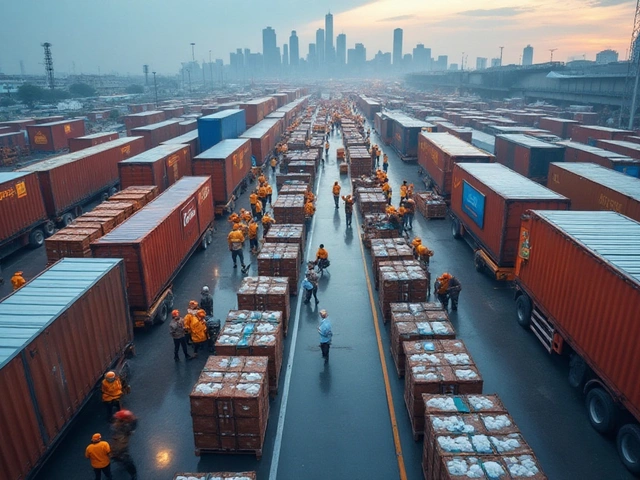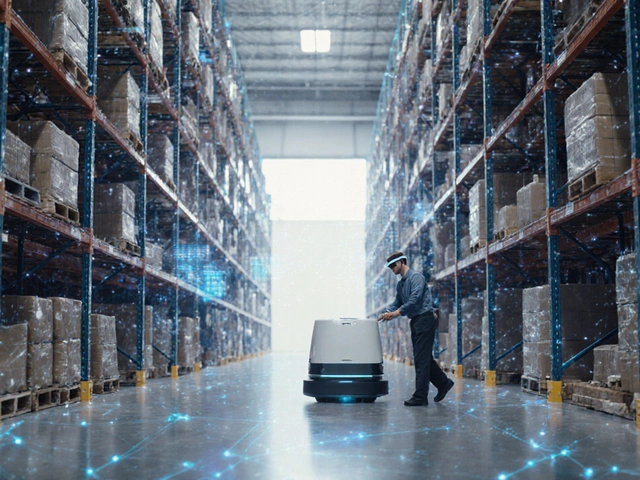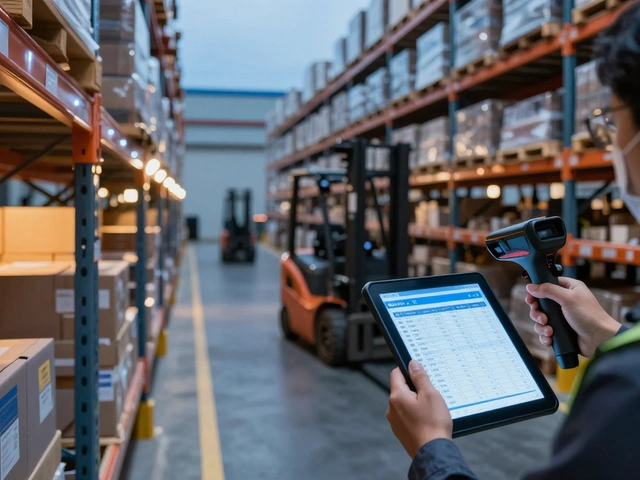If you're gearing up to embrace life on the road as a delivery driver, you're in for an exciting ride through a booming sector. With many companies vying for your skills, picking the right one can make all the difference. In the UK, the horizon is filled with opportunities at leading logistics companies where competitive pay meets cultural fit.
Whether you're ready for the established giants of the industry or seeking the charm of innovative newcomers, the choice is yours. Here, we navigate the landscape of delivery employers to spotlight the ones offering not just jobs, but thriving careers. Get ready to dive into benefits, cultures, and prospects that redefine what it means to deliver.
Job Benefits and Compensation
In today’s job market, choosing a career as a delivery driver can be a rewarding decision when you consider the job benefits and compensation on offer. Various package delivery driver companies provide competitive benefits that are drawing individuals seeking stability and growth. Companies are realizing the crucial role drivers play in their operations, leading to enriched compensation packages that extend beyond just the paycheck. Whether you're attracted to the lure of flexible schedules or the promise of potential bonuses, today’s landscape is rich with opportunity. For many drivers, pay structures are no longer limited to hourly wages; they include performance bonuses and customer satisfaction incentives, adding another layer of motivation. A few companies have set benchmark standards that others are striving to match, promising drivers more than just monetary rewards.
Offering health insurance, paid time off, and retirement plans, companies are aiming to attract long-term commitments from their workforce. In the UK, heavyweight contenders like Amazon and Royal Mail lead with structured pension schemes and tiered earning potential as you progress through their ranks. For instance, Amazon offers various shifts, allowing drivers to find balance both in their professional and personal lives, which many value highly. According to a report from the National Institute of Economic and Social Research, logistics companies that offer comprehensive health benefits see a 25% decrease in turnover rates. They've set benchmarks across the industry, often providing opportunities to purchase company stock at discounted rates, which anchors loyalty.
An interesting aspect is how some companies go the extra mile by incentivizing drivers with a profit-sharing component. This is tailored to give drivers a sense of ownership and directly ties effort to reward. For instance, Hermes is one of the few that provides such options, known for invigorating dedication among their fleet. A report from Forbes indicated that, "Profit-sharing arrangements not only boost morale but can positively impact a company’s bottom line, making well-compensated drivers an asset." It’s no wonder these models are becoming popular. With varied weather conditions being part and parcel of the job, receiving extra allowances during adverse conditions sweetens the deal for many drivers.
When it comes to paid vacations, there’s a marked shift towards generous offerings allowing drivers some much-needed rest. A provision for continuous training also marks a commitment to driver growth. Companies like FedEx foster an environment where you’re not just stuck in one role; pathways to management positions are available, ensuring that hard work pays off. It's a thoughtful ecosystem where development is emphasized, shaping driving into a respected profession. Notably, family-friendly policies enhance the allure, with some companies offering parental leave or childcare vouchers. In essence, these thoughtful packages indicate a broader understanding of worker needs, which plays a key role in job satisfaction and retention.
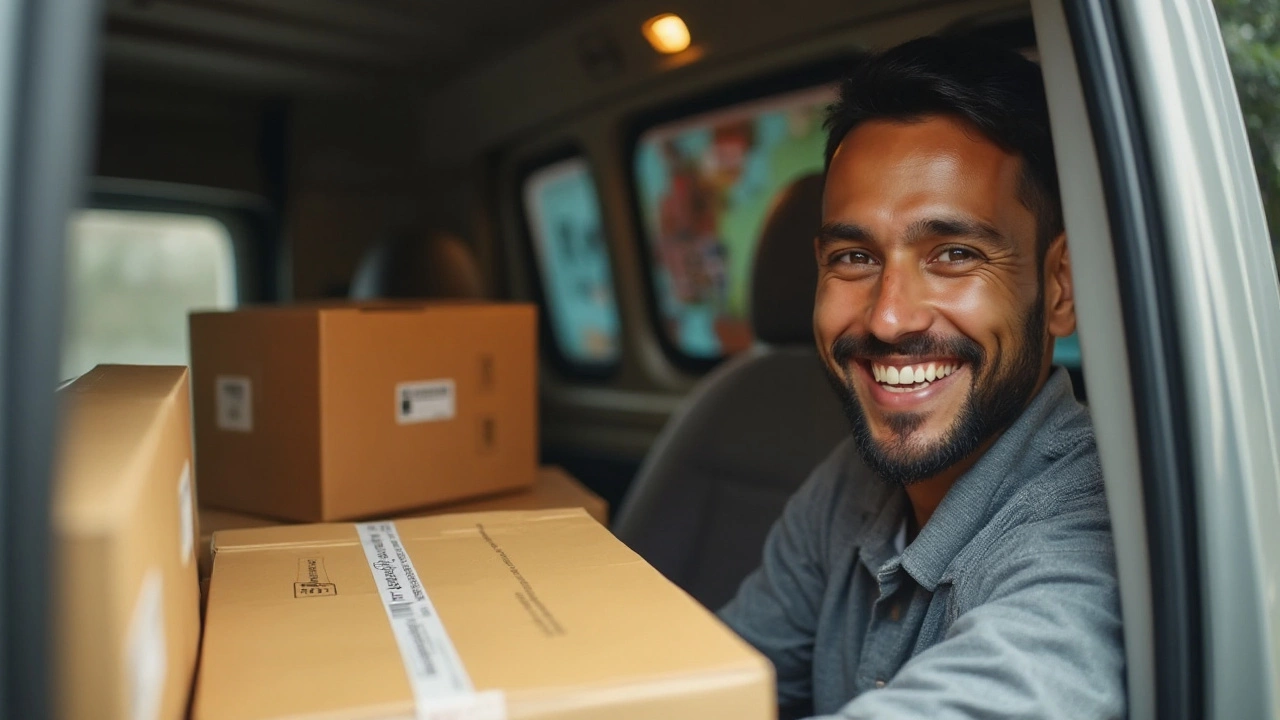
Work-Life Balance
For many, the decision to embark on a career in package delivery revolves heavily around the concept of work-life balance. Especially in today's fast-paced world, maintaining a healthy equilibrium between work duties and personal life priorities is more crucial than ever. Package delivery jobs generally offer varying schedules, which can be a goldmine for those looking to tailor their work hours around family commitments or personal undertakings. This flexibility – the chance to potentially sidestep the traditional 9-to-5 grind – is one of the most alluring aspects of becoming a delivery driver.
Many major delivery driver companies like DPD and Royal Mail provide part-time and full-time options, with some even offering night shifts or weekend slots. This means that if you're a night owl or someone who thrives on weekend work, there are roles that can accommodate you. The structure of delivery routes also enables drivers to generally have a predictable schedule, allowing them to plan their personal lives with more certainty. There’s a growing trend among companies to use advanced logistics technology to optimize routes, which not only boosts efficiency but also ensures that drivers spend less time on the road and more time at home. These subtle yet impactful enhancements showcase the industry's commitment to fostering a healthy work-life balance for its workforce.
Moreover, while some might worry about burnout from constant driving and physical demands, many companies now offer supportive practices to mitigate these pressures. Employers are recognizing the importance of rest and recovery, leading to increasingly supportive measures such as mandatory breaks and ergonomic training sessions. This progressive outlook not only attracts potential employees but also retains existing ones by actively investing in their well-being. As per the insights from the Confederation of British Industry, companies focused on improving employee satisfaction have seen an increase in their employee retention rates by as much as 25% over the last five years.
Such encouraging statistics reflect a broader industry shift towards valuing employee happiness. An apt example of these changes in action can be seen in how many companies are starting to adopt policies on "no-work weekends," ensuring that drivers have ample time to recharge.
According to a study by Harvard Business Review, ‘companies that prioritize mental health and work-life balance not only thrive with a more engaged workforce but witness a notable boost in productivity as well.’ This resonates deeply across the logistics realm, highlighting the symbiotic relationship between employee contentment and operational success.
Ultimately, when choosing among the top package delivery companies, consider those that not only offer competitive perks but are equally invested in promoting a balance between professional obligations and personal aspirations. This tall order often finds its match in companies that are not just leading in logistics but are also setting benchmarks in employee well-being. For anyone with a drive to deliver, there’s ample opportunity to find your niche within this dynamic and ever-evolving field – one that supports your career ambitions while respecting your life outside of work.

Company Culture and Support
Finding the right place to work means looking beyond profitable packages and absorbing yourself in the ethos of the company itself. A good company culture isn't just a feel-good buzzword; it's the scaffold that supports employee satisfaction and retention. Many top-notch delivery firms, renowned for their favorable package delivery jobs, invest significantly in fostering environments where drivers can thrive. From morale-boosting events to open-door policies, these firms aim to ensure their team feels valued and heard. Success in the delivery industry requires more than just efficient logistics; it takes the active engagement and empowerment of its individuals, which these companies prioritize through ongoing training and support networks tailored to bolster every driver's confidence and skillset.
Valuing Employee Voices
Companies known for excellent delivery driver companies often leverage employee feedback to shape policies. Knowing that their voices matter compels drivers to take ownership and pride in their work, promoting a deeply ingrained sense of accountability and dedication. Employees cherish walking into engaging team meetings and voicing concerns without hesitation, directly influencing company direction. Building trust relies heavily on transparency and communication, which companies like DHL and FedEx point out as cornerstones of their culture.
"Listening to our team is not just our policy, but our priority. It’s how we drive innovation and nurture community," says an executive from a leading logistics company.Open lines of dialogue encourage collaborative problem-solving, bringing creativity and better performance to the fore each day.
Incentives and Perks
A strong, supportive company culture is often pared with generous incentives, pushing drivers to excel at their jobs. Recognizing employee milestones through rewards, vouchers, and bonus schemes plays a crucial role in maintaining motivation and loyalty within the workforce. UPS's 'Circle of Honor,' for instance, celebrates drivers who've completed 25 or more years of accident-free driving. This recognition also seems to significantly reduce turnover rates, proving that valuing your workforce and appreciating their hard work are investments that pay direct dividends back to the organization. Many companies highlight health and wellness as priorities, offering gym memberships, mental health days, and flexible working hours to encourage a positive work-life balance. This not only increases job satisfaction but also cultivates a healthier and happier team, which can lead to enhanced productivity overall.
Training and Development
Investing in a robust support infrastructure begins with comprehensive training programs aimed at refining techniques and driving excellence. Many companies offer onboarding mentorships that pair new drivers with seasoned veterans to strengthen peer support and camaraderie. This invaluable exchange of knowledge streamlines the integration process for recruits, offering instant guidance in the practical and cultural dimensions of the company. Moreover, many delivery giants recognize learning as a life-long journey, providing continual development programs to upskill their workforce and prepare them for future opportunities within the company. These initiatives can propel drivers who desire career advancement towards roles like team leadership, operations, or logistics management, making driver careers within these firms both aspirational and attainable.
Flexible and Adaptive Motives
The delivery landscape continually evolves, often requiring agile responses to changing demands. Companies that lead as best delivery employers understand that adaptability and resilience are critical for sustained success. Encouraging drivers to voice innovative ideas and feedback facilitates a shared culture of continuous improvement. Efforts to stay relevant and competitive by adapting to technology advancements in route optimization tools or eco-friendly transportation options signal a forward-thinking approach. This progressive outlook not only aligns with today’s environmental standards but ensures long-term efficacy and positive market perception. Embracing flexibility as part of everyday operations instills a proactive mindset across teams, ensuring drivers are well-equipped to meet industry challenges head-on.
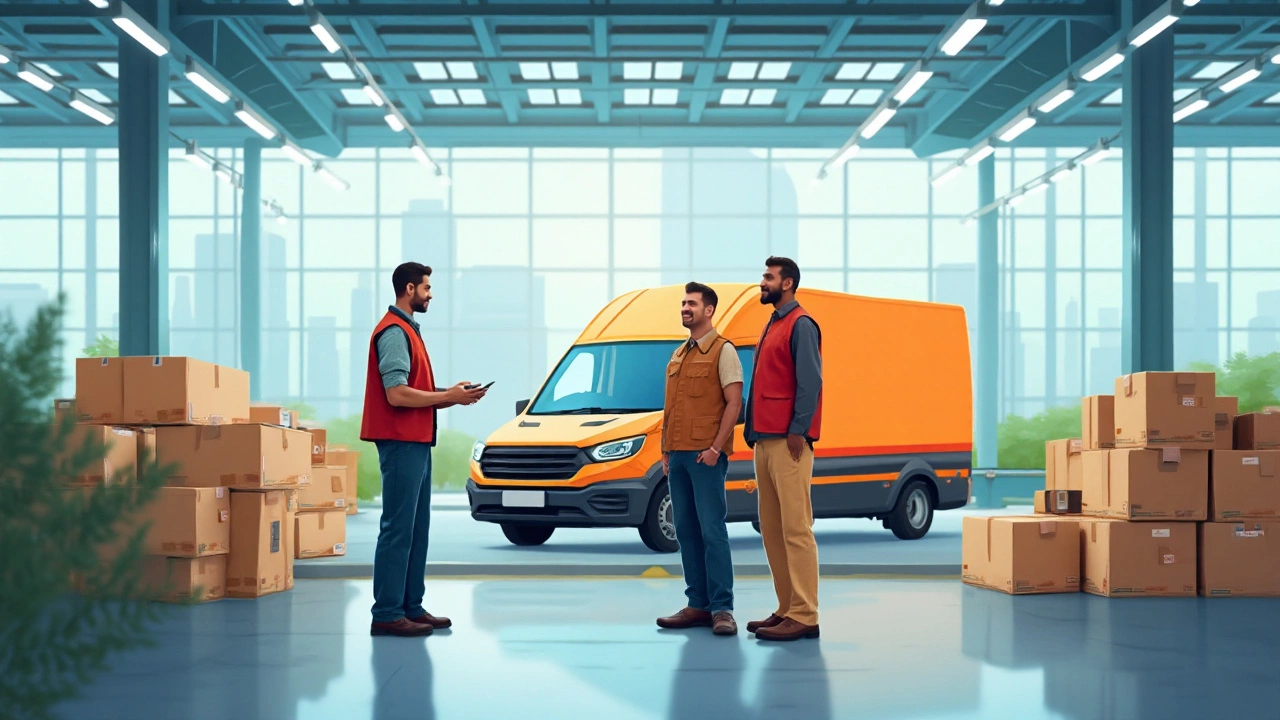
Growth Opportunities
Embarking on a career as a delivery driver doesn’t mean you're limited to the driver's seat forever. Many package delivery companies recognized as top employers understand the power of internal mobility and have crafted structured growth paths for their personnel. These paths vary greatly depending on the size and structure of the company you choose to join. From entry-level delivery driver jobs to management positions, or roles within logistics and operations, there are fertile grounds for advancement. Consider companies like Hermes or UPS, where they have clear ladders to climb and formal training programs in place. These programs educate drivers not only about essential duties but also impart skills necessary for moving into higher-level positions.
With delivery driver roles often serving as entry points, the industry sees employees working their way up to roles such as fleet managers, logistics coordinators, or warehouse supervisors. It's not uncommon for drivers to leverage their on-the-ground experience to transition into these roles, bringing valuable insight into logistical challenges. As an example, according to a logistics industry report, approximately 20% of warehouse supervisors in the UK began their careers behind the steering wheel. This perception of opportunity can significantly impact job satisfaction and long-term career planning. This knowledge not only motivates but also empowers drivers to embrace their roles, knowing that each delivery could be a stepping stone to shaping a substantial career.
Delivery driver companies are actively investing in employee growth, understanding that cultivating talent from within ensures a knowledgeable and committed workforce. Companies like FedEx often promote the idea of a "career climate," fostering environments where ongoing learning is part of the job. Such initiatives can include everything from workshops focused on soft skills and leadership to mentorship programs pairing experienced staff with newer team members. These investments manifest in lower turnover rates and stronger brand loyalty, providing companies with employees who are both passionate and well-versed in their operational intricacies.
The tech-savvy aspect of modern delivery also opens doors for drivers interested in the intersection of logistics and technology. Automation, route optimization software, and advanced tracking systems are now integral parts of delivery processes. Many drivers find themselves becoming adept at using these tools, which can lead to career growth in tech-centered roles within the logistics department
It's significant to mention that not all growth opportunities are upward within the same company. Some drivers, after gaining experience and understanding industry dynamics, even venture into establishing their own delivery businesses, creating a ripple effect of opportunity. This entrepreneurial spirit is backed by several companies providing supportive frameworks through franchising models, which can pave the way for business ownership without significant capital upfront.
"In logistics, talent development is like nurturing a continual stream of productivity to fuel growth," shares a logistics team leader at DHL. This mindset is fast becoming widespread as the secret to harnessing workplace potential. So, while you may start out navigating the streets, the right company can help you navigate toward a future brimming with possibilities and expansion.



